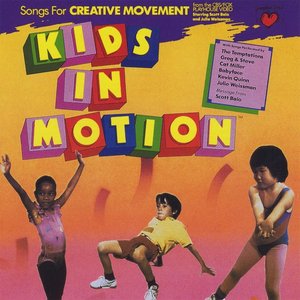

We have all spoken to a child so engrossed in an activity that they appear not to hear us at all. Single-channel attention, 1–2 years: children begin to focus their attention on one activity and do not like a spoken or visual distraction.Distractibility, 0–1 years: babies can only hold their attention for a few moments and they are easily distracted by new sounds or objects.In the 1970s, psychologist Joan Reynell defined the different stages of attention a child will move through from birth to the age of about five as follows:

However, whilst children may be able to hear and listen to sounds and voices, they also need to be able to attend to this ‘listening’ for sustained periods. These skills are absolutely crucial for the development of speech, phonological awareness and, ultimately, reading. Eventually, children will develop the ability to detect, discriminate between and identify sounds, and understand them (in words and sentences). As a child grows they learn to listen to different sounds and discriminate between them, and to recognise voices and sounds from the world around them. By the time they are four months old, a baby will turn towards the sound of a voice. However, just because a child can hear us that doesn’t mean that they are listening!īabies start listening and reacting to noises, sounds and voices at a very young age. The majority of children should be able to use this sense of hearing (although some do have a specific hearing impairment and others may suffer from intermittent hearing loss). Research has shown that babies develop the ability to hear within the womb and will respond within days of birth to their mother’s voice. When children ‘listen’ they are actually drawing on three separate processes:Ī child’s sense of hearing starts to develop at a very early stage in life. Understanding the process and developmental steps can help us to nurture these skills and plan appropriate activities. As with any skill, it has to be practised and encouraged. We are actually asking them to take part in a complex process that at any point can be disrupted by factors such as the child’s stage of development, cognitive ability, state of mind or health.Ĭhildren don’t acquire the ability to listen overnight. We are really saying: can you hear my voice can you listen to the words I’m saying can you look at me or the object can you filter out background noise of other people talking or environmental sounds can you clearly see the visual stimuli can you break down my sentences and understand their meaning and can you sustain all of these at the same time for a reasonable length of time?Ĭlearly, there is quite a lot going on in this simple question and so it is no surprise that some of our children struggle to listen. It’s worth pausing for a moment to consider what we mean when we ask children to listen.

Up to 80 per cent of learning in the early years is verbal and this is why, as practitioners, we are so concerned to see children with poor listening skills. Listening is a crucial skill for young children to acquire, and I wish I had a penny for every time I have asked children to do it over the years! Listening is one of the basic building blocks of language and communication and, particularly in the early years of education, one of the main vehicles for a child’s learning. Eleanor Johnson looks at the development of children’s ability to listen and pay attention, and suggests strategies for improving both skills…


 0 kommentar(er)
0 kommentar(er)
